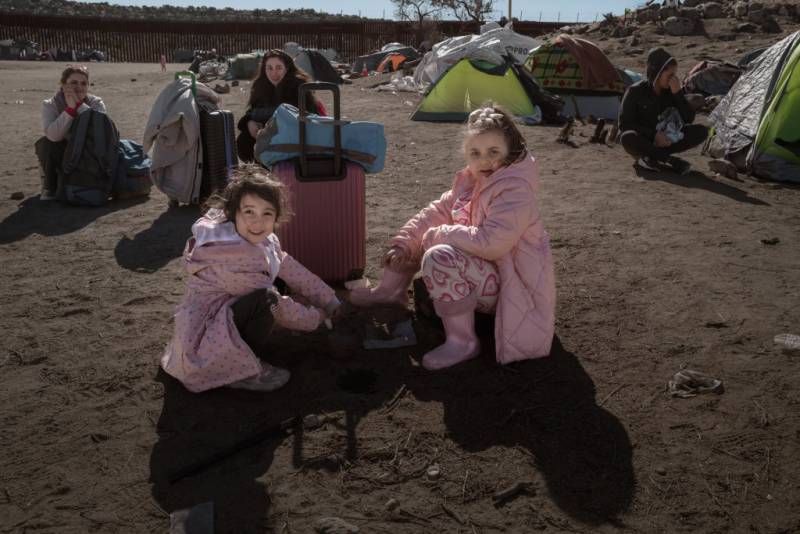Advocates say the Border Patrol often directs migrants to the camps, sometimes even driving them there. Agents are often seen nearby keeping a loose watch until buses and vans arrive.
The Justice Department, which rejects advocates’ label of “open-air detention sites,” says smugglers send migrants to camps. It says agents giving them water and snacks is a humanitarian gesture and that any agent who sends, or even escorts, migrants there is “no different than any law enforcement officer directing heightened traffic to avoid disorder and disarray.”
The Border Patrol generally arrests migrants at the camps within 12 hours of encountering them, down from 24 hours last year, Brent Schwerdtfeger, a senior official in the agency’s San Diego sector, said in a court filing. The agency has more than doubled the number of buses in the San Diego area to 15 for speedier processing.
On Friday, 33 migrants, including two small children, waited between border walls in San Diego until agents came to ask they empty their pockets, remove shoelaces and submit to weapons searches before being taken in vans to a holding station. They were primarily from China and India, with others from Afghanistan, Azerbaijan and Georgia. Agents spoke to them in English.
Pedro Rios, a volunteer with American Friends of Service Committee, delivered turkey sandwiches and hot tea and coffee through spaces in the border wall. He gave pain relievers and ointment to a limping Chinese woman who had fallen from the wall.
Kedian William, 38, said she left a 10-year-old daughter with family in Jamaica because she couldn’t afford the journey, including airfare to Mexico, but that asthma would have made the trip difficult for her child anyway. She planned to apply for asylum and settle with family in New York, having fled her home after her sister-in-law, her sister-in-law’s husband and their child were killed last year.
William said she attempted to reach the camp on Wednesday but fled back into Tijuana to avoid Mexican authorities in pursuit. She tried again a day later, waiting six hours on U.S. soil for agents to pick her up for processing.
